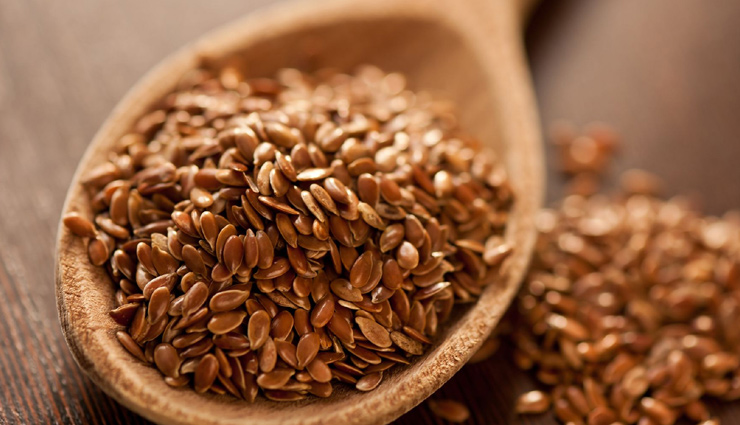- Home›
- Healthy Living›
- 8 Amazing Health Benefits Of Flaxseeds
8 Amazing Health Benefits Of Flaxseeds
By: Priyanka Maheshwari Thu, 18 Jan 2024 11:52:15

Flaxseeds, scientifically known as Linum usitatissimum, are tiny, nutrient-dense seeds derived from the flax plant, a member of the Linaceae family. These seeds have been cultivated for thousands of years and are renowned for their impressive health benefits and versatile culinary applications.
One of the distinctive features of flaxseeds is their rich content of omega-3 fatty acids, specifically alpha-linolenic acid (ALA). Omega-3 fatty acids are essential for maintaining heart health, reducing inflammation, and supporting brain function. Flaxseeds also provide an excellent source of dietary fiber, both soluble and insoluble, promoting digestive health and aiding in weight management.
Beyond their nutritional profile, flaxseeds contain lignans, plant compounds with antioxidant properties. These lignans have been associated with potential benefits for hormone balance, particularly in relation to estrogen levels, making flaxseeds a topic of interest in research related to breast and prostate health.
Incorporating flaxseeds into the diet is relatively easy, as they can be consumed in various forms. Ground flaxseeds are more readily absorbed by the body than whole seeds, and they can be added to smoothies, yogurt, cereals, or used as an egg substitute in baking. Additionally, flaxseed oil, extracted from the seeds, is often used as a supplement or drizzled over salads.

# Rich in Omega-3 Fatty Acids
Flaxseeds are an excellent plant-based source of alpha-linolenic acid (ALA), a type of omega-3 fatty acid. These essential fatty acids play a crucial role in supporting heart health, reducing inflammation, and promoting overall cardiovascular well-being.

# Dietary Fiber
Flaxseeds are high in both soluble and insoluble fiber. This fiber content aids in digestion, helps prevent constipation, and contributes to a feeling of fullness, which can be beneficial for weight management.

# Lignans with Antioxidant Properties
Flaxseeds contain lignans, which are plant compounds with antioxidant properties. Antioxidants help combat oxidative stress in the body, potentially reducing the risk of chronic diseases and supporting overall cellular health.

# Potential Hormone Balance
Lignans in flaxseeds have been studied for their potential to help balance hormones, particularly estrogen. This property has led to research examining the role of flaxseeds in supporting breast and prostate health.

# Cholesterol Regulation
Some studies suggest that regular consumption of flaxseeds may contribute to lower cholesterol levels. The soluble fiber in flaxseeds may help reduce LDL (low-density lipoprotein) cholesterol, commonly known as "bad" cholesterol.

# Blood Sugar Control
The soluble fiber content in flaxseeds may also contribute to better blood sugar control, making them potentially beneficial for individuals with diabetes or those at risk of developing the condition.

# Joint Health
Omega-3 fatty acids found in flaxseeds may have anti-inflammatory effects, potentially benefiting individuals with inflammatory joint conditions such as arthritis.

# Weight Management
The combination of fiber, healthy fats, and protein in flaxseeds can contribute to a feeling of fullness, which may help control appetite and support weight management efforts.





